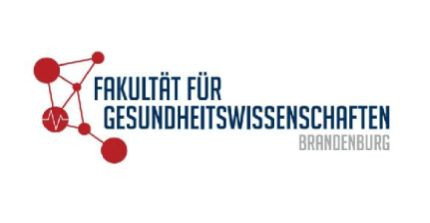Rehabilitation in dialogue
The spectrum of possible long-term consequences of an infection with SARS-CoV-2 ranges from chronic exhaustion and limited resilience to concentration and memory problems. A deterioration in lung function and complications in other organs cannot be ruled out either.
How affected patients can be optimally cared for will be discussed by experts from medicine, science, health care and politics on May 6 in the series "Rehabilitation in Dialog", to which the rehabilitation physician Prof. Dr. med. Heinz Völler invites to the Science Floor of the Potsdam Educational Forum. The conference will be opened by Ursula Nonnemacher, Minister for Social Affairs, Health, Integration and Consumer Protection of the State of Brandenburg. Organizers are the Faculty of Health Sciences Brandenburg, the Brandenburg Ministry of Health and the Cluster Gesundheitswirtschaft Berlin Brandenburg - HealthCapital.
With the outbreak of the Corona pandemic, a "round table" was constituted in the "rehab state" of Brandenburg, which coordinated the aftercare of seriously ill COVID patients in consultation with the Ministry of Health on the one hand and the hospital managements on the other. In this way, together with the acute clinics, it was possible to ensure the cross-sectoral and cross-national care of those affected. An example of this is the post-SAVE network, which has ensured the early rehabilitation of patients with a severe acute course. Dr. med. Jörg Schultze-Amberger, chief physician at the Median Clinic Kladow, will report on this at the conference.
However, not only severely ill patients, but also persons with an initially mild or moderate course of the disease often suffer from consequential damages of the infection. In addition to organ-specific impairments, symptoms of exhaustion and psychological or neurocognitive impairments frequently occur. The care of these post- and long-COVID patients requires interdisciplinary collaboration between medicine, psychotherapy, physiotherapy, occupational therapy and sports therapy, as practiced in rehabilitation facilities. "However, it is important here to understand the pathomechanisms and the resulting peculiarities of postviral syndrome," says Prof. Heinz Völler, MD, of the Faculty of Health Sciences, who, as Medical Director of the Klinik am See, Rehabilitation Clinic for Internal Medicine in Rüdersdorf near Berlin, will speak about the various forms of progression.
Prof. Dr. med. Carmen Scheibenbogen from the Charité Berlin will also take a closer look at the post-viral syndrome - from Long-COVID to Chronic Fatigue Syndrome ME/CFS - in her lecture. The understanding of the different disease mechanisms is considered a prerequisite to be able to offer a personalized program to the affected persons in rehabilitation. On the one hand, this avoids overtaxing the patients, and on the other hand, this concept allows the assessment of occupational reintegration. Whether, in addition, recognition of an occupational disease can be granted for health care workers will also be discussed at the meeting.
When: May 6, 2022, 3:00 p.m.Where: Wissenschaftsetage im Bildungsforum, Room Süring/Volmer, Am Kanal 47, 14467 PotsdamContact: Prof. Dr. med. Heinz Völler, Head of the Chair of Rehabilitation Medicine, Faculty of Health Sciences Brandenburg, University of Potsdam, Medical Director of the Klinik am See, Rehabilitation Clinic for Internal Medicine, Rüdersdorf near Berlin, Secretariat and registration: Beate Barnack, tel. 0331/977 4063, e-mail: beate.barnack@fgw-brandenburg.de
The Faculty of Health Sciences Brandenburg was founded in 2018 as a joint faculty of the University of Potsdam, the Brandenburg Medical School Theodor Fontane and the Brandenburg University of Technology Cottbus-Senftenberg. It forms the core of the Brandenburg Health Campus. The aim is to develop new types of medical, nursing and medical-technical care services as well as innovative courses of study. In cooperation with other universities and research institutions, the faculty is to contribute to improving medical care in the Brandenburg region.
Media contact Antje Horn-Conrad, University of Potsdam, Press and Public Relations Department Phone: +49 331 977-1474, e-mail: presse@uni-potsdam.de
Contact
Stabsstelle Kommunikation und Marketing
T +49 (0) 355 69-3126
susett.tanneberger(at)b-tu.de

